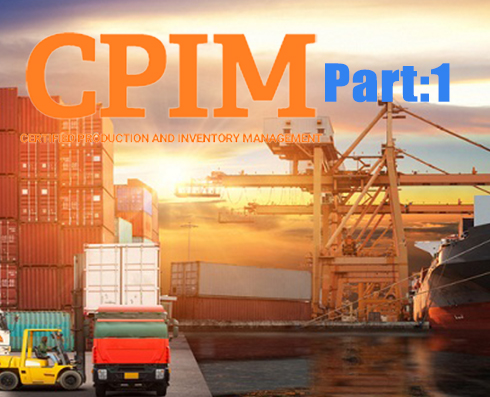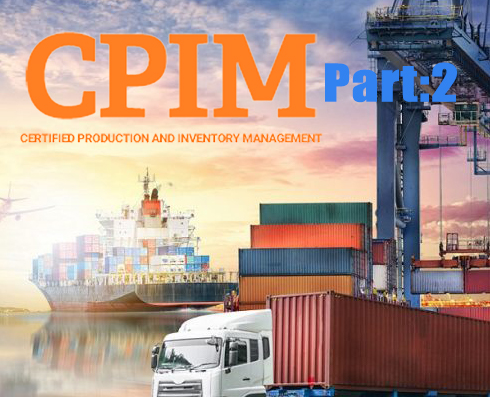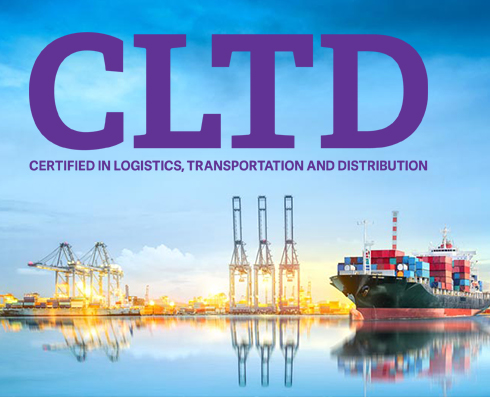
APICS Category
Advance Your Career With APICS Credentials
for CPIM1, CPIM2, CSCP, CLTD, SCOR
APICS Certified in Production and Inventory Management
Internal business subjects such as materials management, master scheduling, forecasting and production planning
Module: Basics of Supply Chain Management
- 1. Section A: Introduction to Supply Chain Management
- 2. Section B: Manufacturing Design, Planning, and Control
- 3. Section C: Quality and Continuous Improvement
- 4. Section D: Lean
- 5. Section E: Demand Management
- 6. Section F: Master Planning
- 7. Section G: Material Requirement Planning
- 8. Section H: Capacity Management
- 9. Section I: Purchasing
- 10.Section J: Aggregate Inventory Management
- 11.Section K : Item Inventory Management
- 12.Section L : Execution and Control
- 13.Section M : Physical Distribution
- Enrolled students: 4
APICS Certified in Production and Inventory Management
Internal business subjects such as materials management, master scheduling, forecasting and production planning
Module 1 : Strategic Management of Resource (SMR)
- Section A : Developing a Business Strategy
- Section B : Gathering and Analyzing Internal/External Information
- Section C : Where Will We Compete?
- Section D : How Will We Compete?
- Section E : Sustainability and Strategy
- Section F : Business Planning and Finance
- Section G : Master Scheduling Process Techniques
- Section H : Principle of Distribution Planning
- Section I : Distribution Planning Techniques
- Module 2 : Master Planning of Resources (MPR)
- Section A : Demand Management
- Section B : Sales and Operations Planning
- Section C : Master Scheduling
- Section D : Distribution Planning
Module 3 : Detailed Scheduling and Planning
- Section A : Inventory Management
- Section B : Material Requirements Planning
- Section C : Detailed Capacity Planning
- Section D : Managing Projects
- Section E : Planning Procurement and External Sources of Supply
Module 4 : Execution and Control of Operations (ECO)
- Section A : Execution of Operations
- Section B : Scheduling and Authorization
- Section C : Quality, Communication, and Continuous Improvement
- Section D : Design Concepts and Tradeoffs
- Enrolled students: No students enrolled in this course yet
APICS Certified Supply Chain Professional
External business subjects such as the extended supply chain,from organizations’ suppliers through to the end customers
Module 1 : Supply Chain Design
- Section A : Develop the Supply Chain Strategy
- Chapter 1 : Introduction to Supply Chain
- Chapter 2 : Inputs to Supply Chain Strategy
- Chapter 3 : Supply Chain Management Strategy
- Chapter 4 : Tools and Techniques
Section B : Design the Supply Chain
- Chapter 1 : Business Considerations
- Chapter 2 : Supply Chain Design
- Chapter 3 : Product Design for New Product or Requirements
- Chapter 4 : Technology Design
- Chapter 5 : Key Technology Applications
- Chapter 6 : Data Acquisition and Management
- Chapter 7 : Electronic Business
- Chapter 8 : Implementation Tools—Communications and Projects
- Module 2 : Supply Chain Planning and Execution
- Section A : Procure and Deliver Goods and Services
- Chapter 1 : Components of Demand Management
- Chapter 2 : Forecasting Demand
- Chapter 3 : Demand Prioritization
- Chapter 4 : Operations Planning and Control
- Chapter 5 : Master Scheduling
- Chapter 6 : Capacity Management, Planning, and Control
- Chapter 7 : Inventory
- Chapter 8 : Inventory Planning
- Chapter 9 : Supply Chain Management
- Chapter 10 : Logistics
- Chapter 11 : Warehouse Management
- Chapter 12 : Transportation
- Chapter 13 : Monetary, Regulatory, and Trade Considerations
Section B : Manage the Relationship with Supply Chain Partners
- Chapter 1 : Segmentation
- Chapter 2 : Customer Relationship Management
- Chapter 3 : Customer Relationship Management Performance and Measurement
- Chapter 4 : Supplier Relationship Management
- Chapter 5 : Supplier Relationship Management Strategy
- Chapter 6 : Supplier Relationship Management Technologies
- Chapter 7 : Linkages between CRM and SRM
Chapter 1 : Reverse Logistics
Chapter 2 : Waste Considerations
Module 3 : Supply Chain Improvement and Best Practices
Section A : Comply with Standards, Regulations, and Sustainable Best Practices
- Chapter 1 : International Standards and Regulatory Compliance
- Chapter 2 : Corporate Social Responsibility Consideration
- Section B : Manage Risk in the Supply Chain
- Chapter 1 : Risk Identification
- Chapter 2 : Risk Assessment and Classification
- Chapter 3 : Risk Response
- Chapter 4 : Security, Regulatory, and Compliance Concerns
Chapter 1 : Supply Chain Metrics
Chapter 2 : Measuring Performance and Customer Service
- Chapter 3 : Continuous Improvement and Change Management
- Chapter 4 : Lean and Lust-in-Time
- Chapter 5 : Change Management
- Enrolled students: No students enrolled in this course yet
APICS Logistics, Transportation & Distribution Certification Program
Module 1 : Logistics Overview and Strategy
- Section A : Logistics Fundamentals
- Section B : The Role, Value, and Cost of Logistics
- Section C : Logistics Strategy within the Supply Chain
- Section D : Logistics Framework
- Section E : Strategic Performance Management
- Section F : Reegineering and Continuous Improvement
Module 2 : Logistics Network Design
- Section A : Facilities Planning and Network Design
- Section B : Risk Management
- Module 3 : Sustainability and Reverse Logistics
- Section A : Sustainability
- Section B : Reverse Logistics
Module 4 : Capacity Planning and Demand Management
- Section A : Forecasting
- Section B : Demand Management
- Section C : Translating Demand into Capacity Planning
- Section D : Sales and Operations Planning (S&OP)
- Section E : Distribution Requirements Planning (DRP)
- Section F : Master Scheduling and Material Requirement planning
- Section G : Sourcing and Procurement
Module 5 : Order Management
- Section A : Customer Relationship Management
- Section B : Order management Process
- Module 6 : Inventory Management
- Section A : Inventory Management in Logistics
- Section B : Inventory Control, Strategy, and Policy
Module 7 : Warehouse Management
- Section A : Warehouse Strategy and Tactics
- Section B : Warehouse Precesses
- Section C : Warehouse Layout
- Section D : Materials Handling
- Section E : Warehouse System and Automation
- Section F : Packaging
Module 8 : Transportation
- Section A : Transportation Fundamentals
- Section B : Road Transportation
- Section C : Rail Transportation
- Section D : Air Transport
- Section E : Ocean and Inland Waterway Transportation
- Section F : Intermodal and Other Transportation Modes
- Section G : Transportation Management
- Section H : Transportation Administration
Module 9 : Global Logistics Considerations
- Section A : Infrastructure and Systems
- Section B : Regulations
- Section C : Customs Clearing and Documentation
- Section D : Finance and Payment Options
- Section E : Currency and Tax Considerations
- Enrolled students: No students enrolled in this course yet
The APICS SCOR Professional (SCOR-P) program enables you to learn techniques for managing and measuring the performance of a global supply chain utilizing the Supply Chain Operations Reference (SCOR) model.
- Enrolled students: No students enrolled in this course yet






